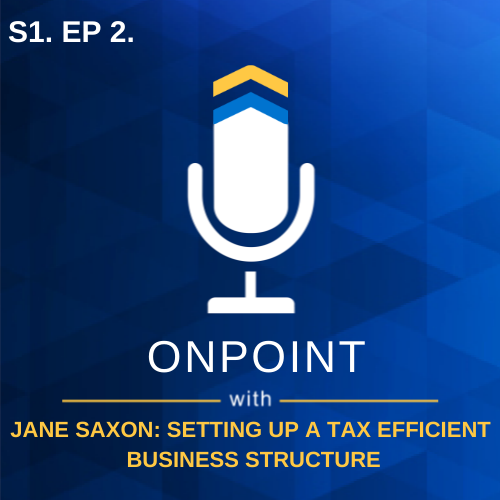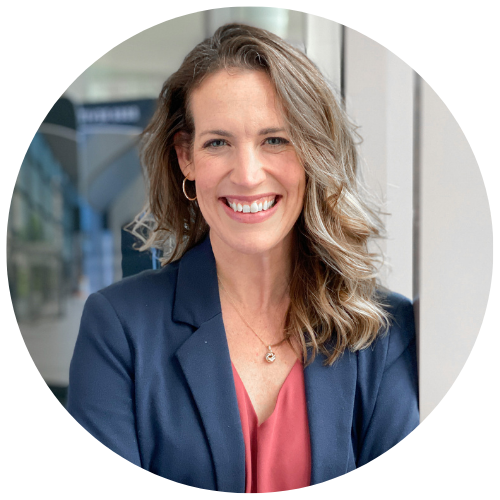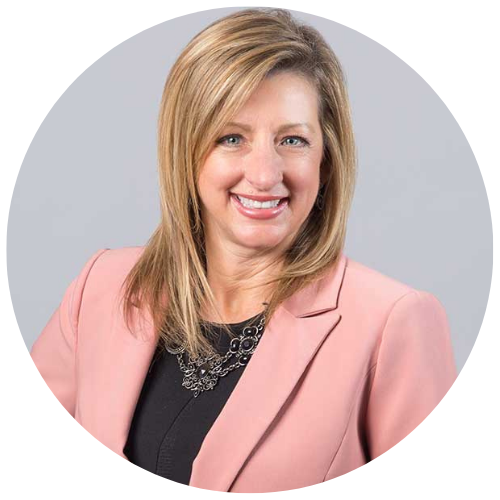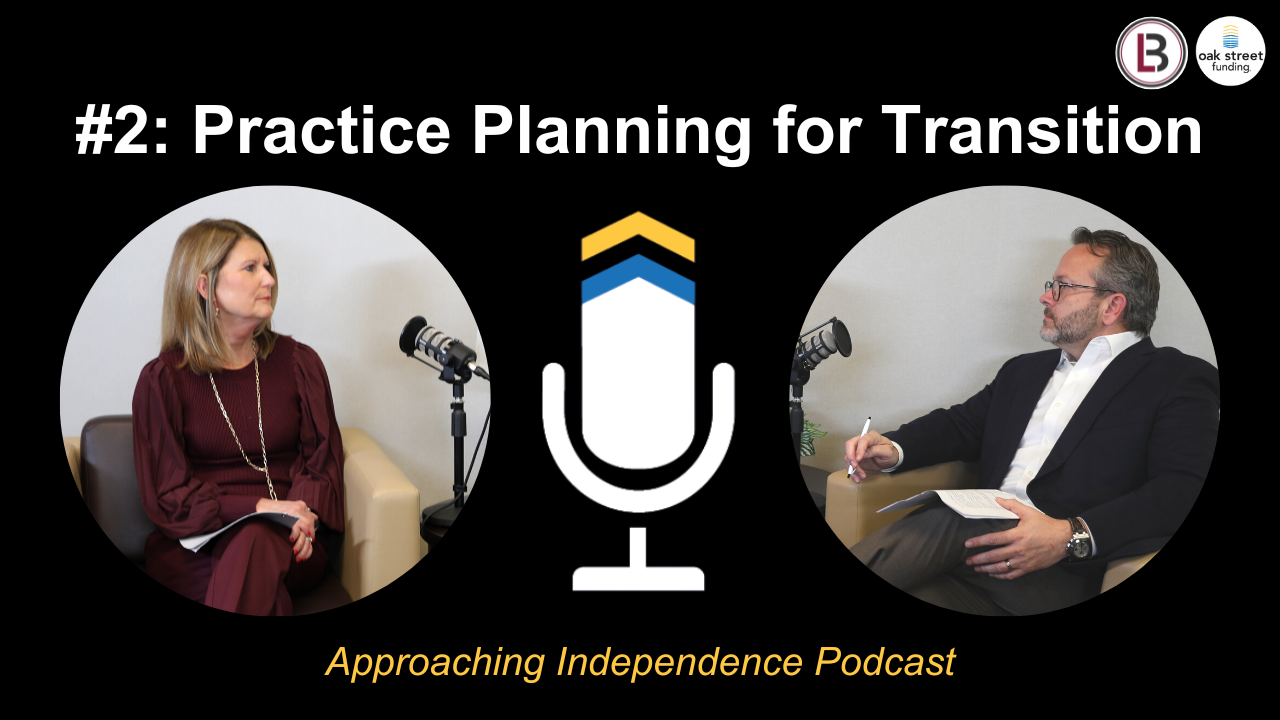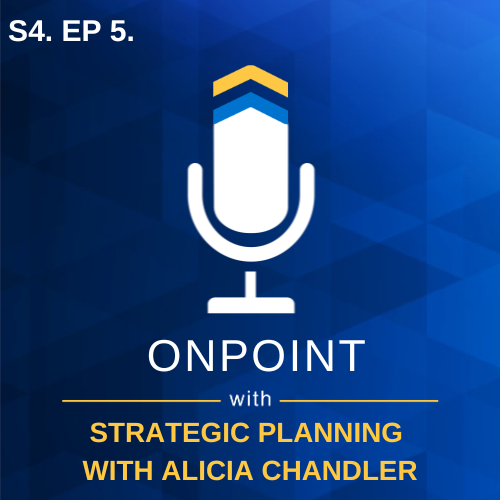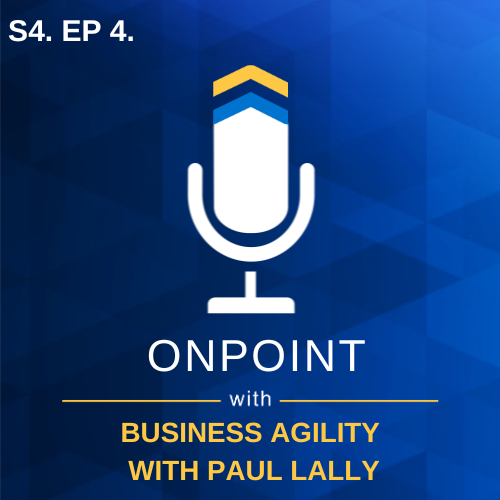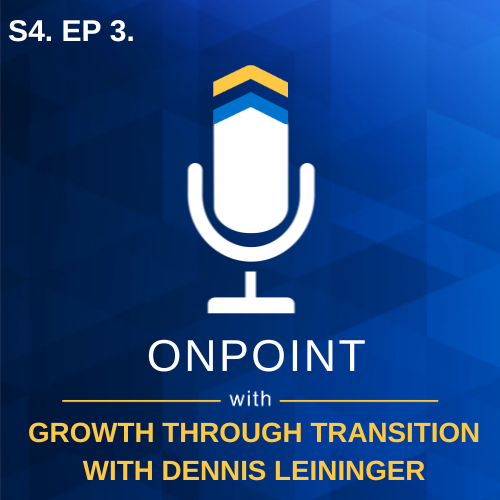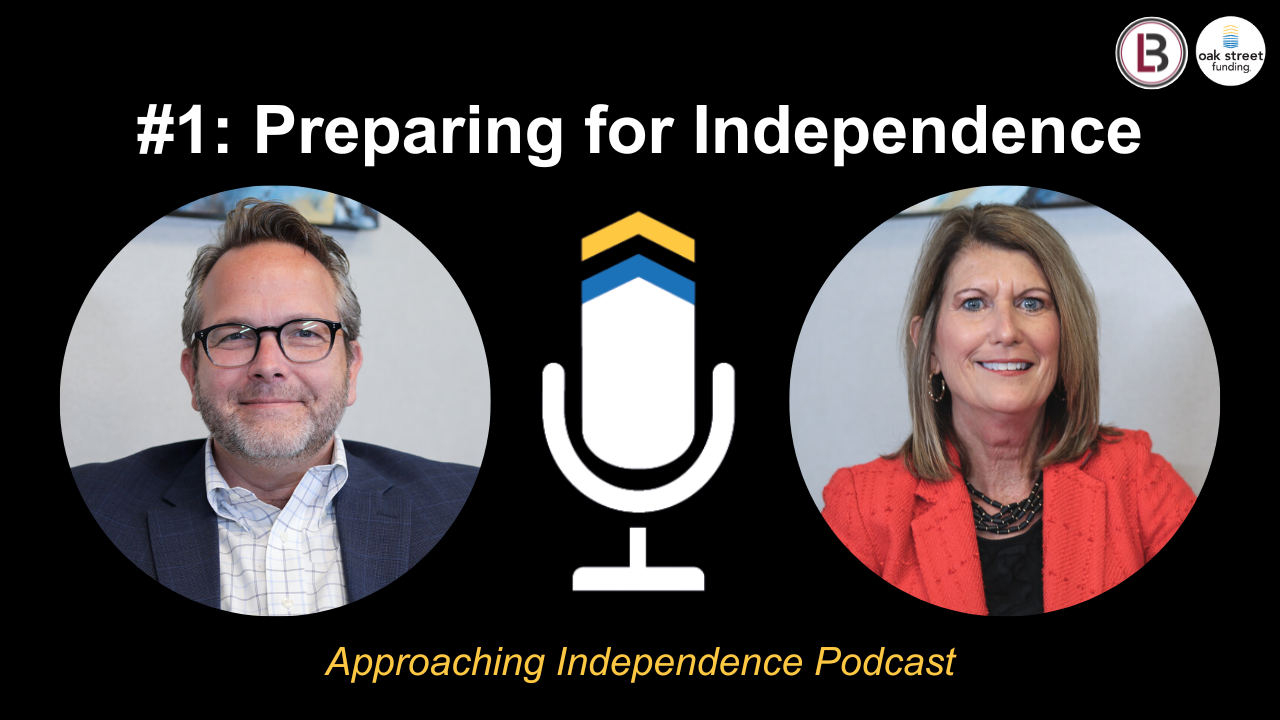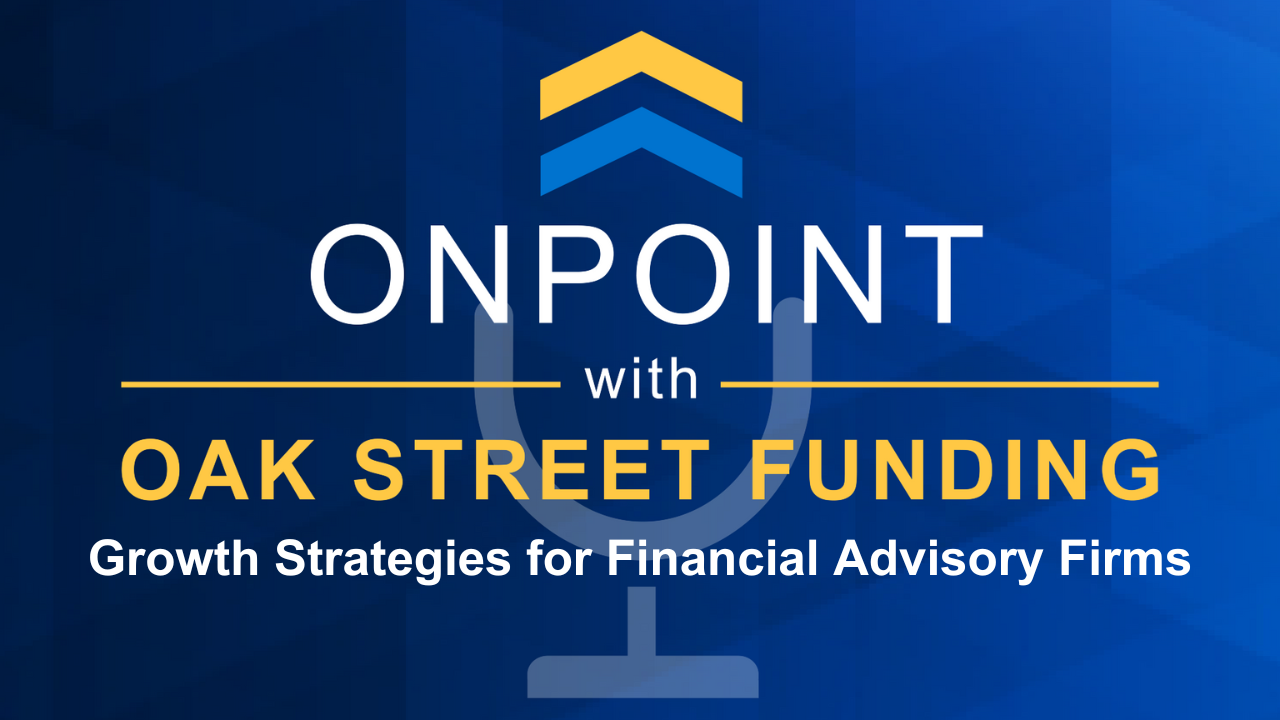S1. Ep. 2 - Setting Up a Tax-Efficient Business Structure with Jane Saxon of Somerset CPAs and Advisors
- 0.5
- 1
- 1.25
- 1.5
- 1.75
- 2
Bridget Haight: Hello, and welcome to OnPoint. A podcast by Oak Street Funding, where we bring research and data backed insights to dig into the minds of industry readers, to learn how to stand out, navigate and break through this ever-changing industry. I'm your host Bridget Haight, and you can support the podcast by following us on Spotify, apple podcasts on our website, or really wherever you get your podcasts. We will be there hanging out, talking to industry readers and ready to empower you to grow your business. Now let's get on point. I am delighted to have Jane Saxon with Somerset CPAs and advisors join me on the show today. Jane has over 25 years of experience delivering professional services to closely held entities, including partnerships, corporations, S Corps, and their owners. She spends most of her time focused on tax compliance and planning with expertise in financial and strategic consulting services. Today, Jane will be sharing information on setting up a tax efficient business structure. Welcome Jane.
Jane Saxon: Thank you for having me. I'm happy to be here.
Bridget Haight: It's so nice to have you. Well, this time of year, taxes are on a lot of people's minds. As we see potential tax changes ahead, could you give us an overview of the anticipated tax law changes and what business owners should be mindful of?
Jane Saxon: Absolutely. So good news for this year is we have no tax change for 2021. Right. And so we are going to be using the same law that's been in place for the last couple years and we'll get to some efficiencies and that are, but as we look forward, the one thing that appears to be consistent is we don't think tax rates are going to go down. We probably are in the period where we're seeing the lowest tax rates that we're going to have in a while. There's been a lot of talk about the Build Back Better plan. Good news is for right now, that seems to be dead. Mansion is reported to almost be rewriting the bill and kind of describing his own tax law. So what we saw in the Build Back Better plan that we thought about, thought might happen, that really doesn't seem to be case. So we're left with some unknowns for the future, but we know what we have now.
Bridget Haight: Okay. So, it seems like there are always anticipated tax law changes.
Jane Saxon: Yeah.
Bridget Haight: And since we don't know when changes will go into effect, what can business owners do in the meantime to get the most out of their tax benefits?
Jane Saxon: So best thing, work with an expert in your industry because the tax code will fill multiple rooms and there are specific tax codes for each industry and there are lobbyists for a lot of industries. And those lobbyists, they garner tax benefits that you want to make sure that you're taking advantage of as a business owner, because if you're not, your competitor probably is and you're at a competitive disadvantage. Additionally, you really want to make sure that you are getting the advantages that are already in the tax code that apply to you. Taking a look at your corporate tax return or your business tax return, you're making sure that all of the proper elections, the deductions are in there. One of the areas that we see missed quite frequently is the application of this qualified business income deduction that's been around for a while, for flow through entities. It's basically a 20% deduction of their business income. What we see missed though is often it applies to other income that's related to the core business. So it could perhaps apply to the rental real estate income if the rental property is owned by the same owner as the business entity, or if there's outside income that might be related to the business. So making sure that we're applying all of the tax law that already exist, all right? Just applying it properly.
Bridget Haight: Okay. Now, the structure of your business is super important.
Jane Saxon: Yes.
Bridget Haight: Can you walk us through the common business structures and how they are taxed differently?
Jane Saxon: Certainly. So a C corporation, or just a standard corporation, is one that's been in existence for the most amount of time. And a C corporation you have to think of it as a separate entity from the owner. It operates separately, it pays its own tax, just like an individual pays their tax.
Bridget Haight: Okay.
Jane Saxon: A S corporation is still a corporation. It's a corporate entity, but it has made an election to be taxed as an S corporation. And what that means is that rather than paying tax at the corporate level or paying its own tax, the taxable income flows through from that entity to the business owners and then the tax is paid from their personal tax returns. Okay?
Bridget Haight: Okay.
Jane Saxon: So a partnership is very similar to an S corporation. There are certain rules that apply to whether you can be an S corporation or whether you need to be a partnership if you have multiple owners. But a partnership is very similar. The income flows through from the business to the owners of the business and then is reported on their personal tax returns. Those are typically when you see an LLC. An LLC, a limited liability company can be reported as a partnership.
Bridget Haight: Okay.
Jane Saxon: And then you could be a sole practitioner as well, meaning that you report your income just on your schedule C. So several different ways to structure your business.
Bridget Haight: Okay. And then once a business owner has set up that structure of their business, most effectively, what operational practices should they put into place?
Jane Saxon: Right. And that's going to differ by your structure. And again, you want to make sure you're taking advantage of the tax efficiencies for each structure, for example, an S corporation, the owners will receive a salary from their S corporation, as well as receive dividends from their S corporation. And sometimes our owners don't understand how to maximize the efficiencies between the salary and the dividends.
Bridget Haight: Right.
Jane Saxon: And again, that qualified business income deduction that we talked about?
Bridget Haight: Mm-hmm,
Jane Saxon: That comes into play if you're an S corporation, or if you're a partnership. So you get the qualified business income deduction on the business income. If you take too much salary out, you're losing that 20% deduction on that excess salary. So you want to make sure that you're structuring that properly. A C Corp is a little different because it pays its tax at the corporate level. And it acts like just an individual entity in itself. So it pays its tax, but then in order to get those earnings out to the owner, we've got to either distribute them out as a dividend just like you'd get from IBM, or say Apple-.
Bridget Haight: Okay.
Jane Saxon: ...and you pay a second level of tax on that. So you want to be very deliberate about how you structure the payment out of the business to the owner.
Bridget Haight: Okay. So what are some tips for the business owner who is trying to balance both a robust tax strategy and optimize their lending abilities?
Jane Saxon: This is a great question. And I love this question for business owners, because I think it's one that we don't talk about enough. Most small business owners are always focused on paying the least amount of tax possible, and that's our job, right? We want to pay the least amount of tax legally allowable under the law. However, that's not an ideal situation for a lender when they look at your financial statements.
Bridget Haight: Right.
Jane Saxon: They don't want to see a financial picture where you're not making very much money and not paying very much tax. They want to know you can pay your debt back. And a lot of small business owners think they have to choose between the two. And you don't. The way that you manage that is you prepare internal financial statements that are as close to a GAAP basis as you can get. So GAAP stands for generally accepted accounting principles. I know, right? But what that really means is it's a proper matching of revenue and expense. The internal or the audited or reviewed financial statements, those are meant to show the actual performance of the company during the year. We want to know how much did we have to spend to earn this amount of money? So we're trying to match revenue expense together to really show what our operations generated. From a tax perspective, our entire goal is to minimize our taxable income to pay the least amount of tax possible. So there are two different purposes for each of those documents. And if you're preparing GAAP financial statements, that's what your lender's going to look at.
Bridget Haight: Okay.
Jane Saxon: And that is a true picture of how you perform through the year. And that's what we want our lender to see. And then you can prepare your tax return. Your tax return has a different set of rules and laws that we follow. So we'll prepare the tax return still to be very tax efficient. And then what most people don't know is there's a reconciliation on the tax return that shows the differences between the two. So when your potential lender looks at it, they can see, okay, here's my book income. Here's my taxable income. Here were the differences in between.
Bridget Haight: Fantastic. Okay. So some of the business owners do struggle to find a balance between taking a salary from their business, and running personal expenses through the books to lower their taxes. What is the best way to make sure that they are paid fairly?
Jane Saxon: Fairly.
Bridget Haight: Mm- hmm.
Jane Saxon: So when you are a business owner and you work in your business, you wear two different hats. You wear a hat as an employee, you're doing the day to day. What would you pay somebody to do to perform the duties that your business requires? You wear another hat as an investor in that business. And we want our owners to be compensated for both and in two different manners, most commonly. So take a salary that is equivalent to what you would pay a third party to do what you do in your business. For example, if you own a car dealership and you're the general manager, what would you pay your general manager to perform the duties you perform? That is your accurate salary. Your reward as an investor comes out as distributions, which is completely separate. So we don't always want to compensate our owners through payroll because A, we incur their additional payroll taxes. But like I said, if we are paying excess payroll, we're losing this qualified business income deduction, that is a permanent loss of the deduction. So we want to make sure you're balancing payroll and distributions and dividends. As far as personal expenses, there are a couple different thoughts that I want to share on that. First, the IRS rounds on running purely personal expenses through the business.
Bridget Haight: Right.
Jane Saxon: So we don't want to put ourselves in a position to find ourselves on the wrong end of a random IRS on.
Bridget Haight: Right.
Jane Saxon: But the other reason that we want to avoid that is if we're looking to sell or exit our business, we are falsely reducing the income of our business that a potential buyer might look at because they don't know that, oh, I always took my family to dinner and all of those expenses are in the business for the last five years. When I went on vacation, I always paid for it through the business. They don't see that. And when we explain to them those expenses have run through the business, the more they are, the less that they are likely to accept that those are legitimate hand backs to the profit.
Bridget Haight: Okay.
Jane Saxon: And so they may undervalue your business.
Bridget Haight: And we don't want that.
Jane Saxon: We don't want that.
Bridget Haight: So if you own a property or buildings associated with your business, the taxes can be huge. Do you have a tip for how to lessen the tax burden of real estate?
Jane Saxon: I do. I do. So if you own real estate alongside your business, and you are the tenant of that real estate, we want to do what's called a cost segregation study. And what that means in simple terms is from a financial perspective, we take the building and we pull it apart into all the different pieces of the building envelope. So we look at what portion of the electrical? What did that cost? The framing inside, the trim in the building. And we can break that down. And what it does is from an IRS perspective, it allows us to depreciate some of those pieces much quicker, because a building as itself, we can only depreciate it for 39 years, meaning we recapture that cost one year at a time for 39 years. But if we can pull it apart into different components, those components, we can depreciate much quicker. Some of them in the first year, some of them over a three year period, a five year period, a seven year period. So we can really accelerate some of those deductions to help reduce the tax liability.
Bridget Haight: That's great. Charitable donations have long been a way for business owners to increase their tax write offs. Do you have advice for business owners who want to maximize the benefits of their donations?
Jane Saxon: Certainly. If a business owner is charitably inclined, we want to maximize those deductions and give them the flexibility of how they want to distribute that to their chosen charity. And one of the tools that we used to do that is a donor advised fund. And so what a donor advised fund allows an individual to do is they set up a fund and it's really kind of a bank account. And they deposit, let's say that they want to give $200,000 away over the next five years. They could put that full $200,000 in the first year and they get the deduction for that $200,000 in the first year they put it in, but then they could decide how they want to distribute that over the next few years. So they might give, say $40,000 to their church or religious institution. They might want to give $40,000 to kind of priorate the next year. They don't have to give away that full $200,000 at that time.
Bridget Haight: Okay. Okay. So it is a bit too late to make any of the changes suggested here today for the 2021 tax filings.
Jane Saxon: It is, unfortunately.
Bridget Haight: But is there anything that business owners can do if they haven't filed for 2021 yet?
Jane Saxon: I think being just very deliberate about making sure that you are gaining all the tax advantages that are there and working with a qualified CPA, asking questions and making sure that your financial statements are in really good order because the financial statements are the backbone of the tax return. So if you have not captured something in this financial statements, or if your accounting is not tidied up before the end of the year, make sure you do that and talk to your advisor about what you did throughout the year. And sometimes it's just that conversation that you may not realize is important, but they'll go, oh, tell me more about that. Maybe you refinanced your building or maybe you did buy a new building and we need to talk about those things. Make sure you tell us, really give us a history of what happened through the year.
Bridget Haight: So communication is key.
Jane Saxon: Absolutely.
Bridget Haight: Just like doctors-.
Jane Saxon: Exactly.
Bridget Haight: ...and lawyers.
Jane Saxon: Yeah, exactly. Some of the things that are little, those are really things that will be a hint to some opportunities.
Bridget Haight: Mm- hmm. Okay. So what final advice do you have for business owners looking to optimize their business taxes?
Jane Saxon: I think that, have a long range plan. So don't look at it at just one year at a time. As I said right now, we think that we are in the lowest tax environment we're going to be in. And what that says to us is perhaps we might want to consider that this is not the year that we want to reduce our taxable income to the least amount possible if we have the ability to spread that between years. Maybe we want to take advantage of deductions when we think rates are going to be higher. So making decisions based on a long range plan, not just the one year. And again, making sure that you are talking with your advisor.
Bridget Haight: Right.
Jane Saxon: Communication and asking questions that you might think are relevant to your business. And if they're not, your advisor will explain to you why that may not apply to you. But I think it's really important to have that communication.
Bridget Haight: That's great advice. Okay. So before we leave today, I have one last question. We like to ask our guests a personal question.
Jane Saxon: Okay.
Bridget Haight: And today I would like to know if you could have dinner with anyone, real or fiction, who would you choose and why?
Jane Saxon: Oh goodness. This is one of those my favorite question and my least favorite question both. This is a somewhat of a personal answer, but if I could have dinner with one person, I would choose my father. He passed 20 years ago. And I think now growing in my professional career and growing in life, it would be interesting to have a conversation with him now. I think I would have a bigger appreciation for his thoughts and-
Bridget Haight: What did your dad do?
Jane Saxon: ...his direction. My dad had two careers, so he was retired from the air force. He directed the missile safety program many, many years ago in the air force. And then he was a small business owner and that is what really inspired my desire to work with small business owners.
Bridget Haight: Oh, I bet it would be a stimulating conversation.
Jane Saxon: It would be very interesting.
Bridget Haight: Well, thank you Jane so much for joining us today.
Jane Saxon: Absolutely, thank you for having me.
Bridget Haight: Yes, of course. Thank you all for listening to On Point, a podcast by Oak Street Funding, where we bring research and data backed insights to dig into the minds of industry readers, to learn how to stand out, navigate and break through this ever-changing industry. I am Bridget Haight and tune in next time, wherever you listen to podcasts to hear Oak Street Funding's, Brian Henson, discuss financing best practices for your business. See you then as we get on point and don't forget to subscribe and leave us a review.
DESCRIPTION
Oak Street Funding is delighted to have Jane Saxon with Somerset CPAs and Advisors join us on the show! Jane has over 25 years of experience delivering professional services to closely held entities, including partnerships, corporations, S-corps, and their owners. She spends most of her time focused on tax compliance and planning with expertise in financial and strategic consulting services. In this episode, Jane will be sharing information on setting up a tax-efficient business structure. Want to learn more?
Call 844-353-8022 to speak to an Oak Street Funding team member today.

